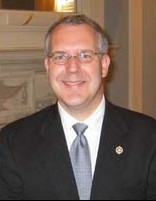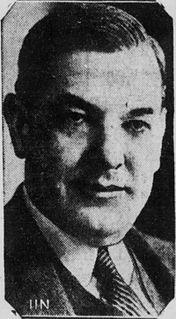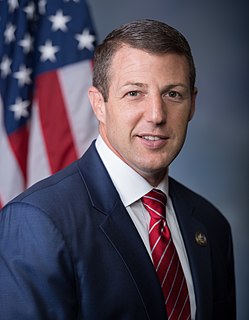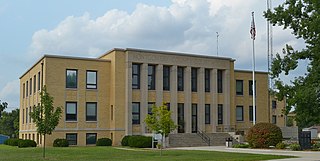
The United States presidential election of 1908 was the 31st quadrennial presidential election, held on Tuesday, November 3, 1908. Secretary of War and Republican Party nominee William Howard Taft defeated three-time Democratic nominee William Jennings Bryan.

The Kansas City Star is a newspaper based in Kansas City, Missouri. Published since 1880, the paper is the recipient of eight Pulitzer Prizes. The Star is most notable for its influence on the career of President Harry Truman and as the newspaper where a young Ernest Hemingway honed his writing style. It was also central to government-mandated divestiture of radio and television outlets by newspaper concerns in the late 1950s.

Charles Bradford "Brad" Henry is an American lawyer and politician who was the 26th Governor of Oklahoma. A member of the Democratic Party, he was elected governor in 2002. Henry won re-election for a second term on November 7, 2006 with 66% of the vote.

Eugene Field Sr. was an American writer, best known for his children's poetry and humorous essays. He was known as the "poet of childhood".
Eugene Collins Pulliam was an American newspaper publisher and businessman who was the founder and longtime president of Central Newspapers Inc., a multibillion-dollar media corporation. He was the maternal grandfather of Dan Quayle, the 44th Vice President of the United States.

Leon Chase "Red" Phillips was an American attorney, a state legislator and the 11th governor of Oklahoma. As a member of the Oklahoma House of Representatives and as Speaker of the Oklahoma House of Representatives, Phillips made a name for himself as an obstructionist of the proposals of governors William H. Murray and E.W. Marland, including components of the New Deal. As governor, Phillips pushed for deep cuts, but was unable to avoid an unbalanced budget.

Ernest Whitworth Marland, known as E. W. Marland, was an American lawyer, oil businessman in Pennsylvania and Oklahoma, and politician who was a U.S. Congressman and Oklahoma governor. He was elected to the United States House of Representatives from northern Oklahoma in 1932 and as the tenth Governor of Oklahoma in 1934. As a Democrat, he initiated a "Little Deal" in Oklahoma during the Great Depression, working to relieve the distress of unemployed people in the state, and to build infrastructure as investment for the future.

Edward Hall Moore was a United States Senator from Oklahoma from 1943 to 1949.

The politics of Oklahoma exists in a framework of a presidential republic modeled after the United States. The governor of Oklahoma is both head of state and head of government, and of a pluriform two-party system. Executive power is exercised by the governor and the government. Legislative power is vested in the governor and the bicameral Oklahoma Legislature. Judicial power is vested in the judiciary of Oklahoma. The political system is laid out in the 1907 Oklahoma Constitution.
The Oklahoma Republican Party is a political party affiliated with the United States Republican Party (GOP). Along with the Oklahoma Democratic Party, it is one of the two major parties in Oklahoma politics.

Bird Segle McGuire was an American politician, a Delegate and the last U.S. Representative from Oklahoma Territory. After statehood, he was elected as an Oklahoma delegate to Congress, where he served six consecutive terms. He retired from politics in 1915. He was a cousin of William Neville.

Everette Burgess Howard was an American politician and a U.S. Representative from Oklahoma.
Clyde A. Wheeler was an American congressional relations expert, lobbyist, and member of the White House staff. After leaving the White House staff, he returned to Oklahoma, where he settled in Tulsa and became a lobbyist for Sun Oil Company. He retired from Sun in 1984 and returned to his ranch in his home town of Laverne, Oklahoma. He continued to do part-time work as a consultant for two Washington law firms until 1988. He died in Laverne in 2013.
Howard G. Barnett Jr. is an American businessman and politician from Oklahoma who is currently serving as the President of Oklahoma State University-Tulsa. Barnett previously served as the Oklahoma Secretary of Commerce under Governor of Oklahoma Frank Keating from 1998 to 1999. Keating appointed Barnett to serve concurrently as the Director of Oklahoma Department of Commerce.

Markwayne Mullin is an American politician, businessman, and former professional mixed martial arts fighter who has been the United States representative for Oklahoma's 2nd congressional district since 2013. He owns several businesses, which he took over at twenty, when his father became ill. Mullin, a member of the Republican Party, was elected to the U.S. House of Representatives in the 2012 elections, succeeding Democratic representative Dan Boren.
James Edward Berry was an American politician who served as the sixth Lieutenant Governor of Oklahoma from 1935 to 1955. No other person has tied or beaten Berry's record for holding that office. Although he tried twice to win a seat in the U.S. Senate, he was unsuccessful in both attempts. He was finally upset in a primary runoff election against Cowboy Pink Williams in 1954.
Joseph A. Gill was a native of what is now Wheeling West Virginia. A graduate of the University of Illinois, he moved about in the western U.S., practicing law, and even editing newspapers. He settled in Kansas where he practiced law and became active in Republican party politics. A vigorous supporter of William McKinley for President in 1896, he was rewarded with an appointment as United States Judge for the Northern District of the Indian Territory in 1899. President Theodore Roosevelt reappointed him to serve in the same position from 1903 to 1907.
The Frontier is an investigative news and multi-media platform website that practices watchdog journalism related to the U.S. state of Oklahoma. The Frontier is headquartered in Tulsa, Oklahoma. The publication has become a non-profit corporation operated by The Frontier Media Group Inc.
















